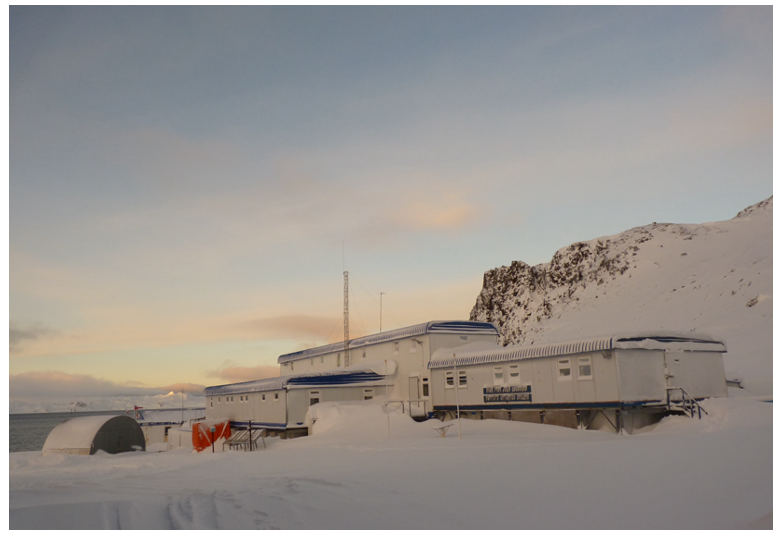Professor Julio Escudero Station, CL

Professor Julio Escudero Station, CL
Professor Julio Escudero Station is a permanent Chilean Antarctic research base. It is located on King George Island just next to Base Presidente Eduardo Frei Montalva and within the civilian settlement of Villa Las Estrellas.
The Professor Julio Escudero Station is one of the main points where scientific knowledge is generated for Chile and for the international community. Investigations focus on the state of the Antarctic ecosystems, climate change in Antarctica and on astronomy and earth sciences.
Science disciplines: Antarctic Ecology, Ecosystem resilience and adaptation, Climate change, Earth sciences, Biotechnology.
Capacity: Technicians and scientists: 60people.
Contribution to POLARIN key research challenges: 1, ,3,4,5, 6
Contact: Andrés López Lara alopez[at]inach.cl
Website:
https://www.polarin-gis.org/Home/Station/109
https://www.inach.cl/expedicion-antartica/bases-chilenas-en-antartica-2/base-profesor-julio-escudero/
Facilities
Professor Julio Escudero Station has a wet laboratory, a multipurpose laboratory, a microbiology and basic molecular biology laboratory, a room equipped with a cold chamber and a work area for divers. It has two zodiacs and one rigid vessel. Aquarium. 200 square meters of laboratories.
Equipments: Class II laminar flow hood suitable for microbiology workflows, Ultrafreezer -80ºC and Lyophilizer for cold chain maintenance, cold chamber for experiments under ambient conditions of 1 to 4ºC, aquariums with open flow or recirculation system.
Communications: Starlink inside the station, InReach outside. Also 5G.
Services offered: Professor Julio Escudero Station offers accommodation, meals, access to laboratories, and zodiacs for taking samples. It’s commonly used by international researchers. In the season 22-23 it has been visited by 35 international researchers (18%).
What is included in the Access
Unit of access: User/day
Modalities of access offered: In-person access, remote access
It includes accommodation, all meals and access to laboratories. The typical duration of work is between 15 and 30 days. The researchers will join the team of station researchers, being part of the station’s logistical arrangements to meet the scientific objectives of each project.
Availability for Access
See the table in the dedicated Transnational Access call page.
Time frame for access preparations
Time frame to receive the documentation from RI users (after access is granted): Three months before the travel.
Time frame for logistic arrangements to access the RI: One month before the travel.
Permits, licenses and training
Driving License and ZAEPs authorization.
Medical guidelines
Health certificate for extreme zones.